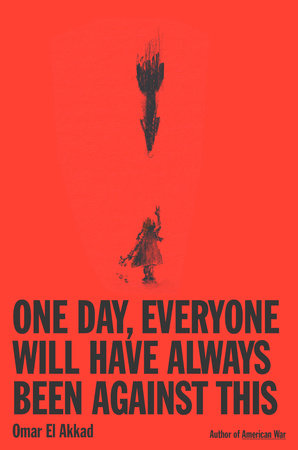More on this book
Community
Kindle Notes & Highlights
Read between
August 4 - August 13, 2025
It is a hallmark of failing societies, I’ve learned, this requirement that one always be in possession of a valid reason to exist.
Rules, conventions, morals, reality itself: all exist so long as their existence is convenient to the preservation of power. Otherwise, they, like all else, are expendable.
Once far enough removed, everyone will be properly aghast that any of this was allowed to happen. But for now, it’s just so much safer to look away, to keep one’s head down, periodically checking on the balance of polite society to see if it is not too troublesome yet to state what to the conscience was never unclear.
In the modern, well-dressed definition, adhered to in one form or another at almost every major newspaper, the journalist cannot be an activist, must remain allegiant to a self-erasing neutrality. Yet journalism at its core is one of the most activist endeavors there is. A reporter is supposed to agitate against power, against privilege. Against the slimy wall of press releases and PR nothingspeak that has come to protect every major business and government boardroom ever since Watergate. A reporter is supposed to agitate against silence. To maintain both these realities at the same time—of
...more
I understand this is just how things are, ethical double-jointedness being a necessary requirement for the daily debasements of modern political life. And yet I still wonder how someone can maintain this particular facade and sleep at night. The journalists who bring the reality of the world to light are daily slaughtered. Meanwhile, an embarrassing number of their Western colleagues, who for the most part fear no such outcome but accept it as the sad lot of those distant others, travel within the protective cocoon of people like the very concerned secretary and measure his vacuous
...more
What power assumes, ultimately, is that all those who weren’t directly affected by this, who only had to bear the minor inconvenience of hearing about these deaths from afar, will move on, will forget.
After chiding activists who warned years ago of the Republican Party’s descent into outright fascism, mainstream Democrats have now fully embraced the accusation. It’s become difficult to find a single Democratic campaign appeal that doesn’t lean hard on the warning that the Trump wing of the GOP—which is now the only viable wing of the GOP—represents an existential threat to democracy, the United States itself. Fight it, then. Propose something to meet the nature of the moment. It can’t be the case both that the Supreme Court is an unaccountable neoconservative body intent on rendering the
...more
Earlier the same day, demonstrators shut down the bridges into Manhattan. As with all such acts of disobedience, the usual cavalry of talking heads emerges to note that these protests only inconvenience people, and that inconveniencing people is not an effective way to change their minds. Never is this logic applied to the past, to the demonstrations that shut down bridges to call for an end to segregation, for example. Because if applied to a moment already deemed righteous in hindsight, such an argument would be shown immediately for its spinelessness. But for now, it’s fine. For now, a
...more
When the past is past, the dead will be found to not have partaken in their own killing.
Language is never sufficient. There is not enough of it to make a true mirror of living. In this way, the soothing or afflictive effect of the stories we tell is not in whether we select the right words but in our proximity to what the right words might be. This is not some abstraction, but a very real expression of power—the privilege of describing a thing vaguely, incompletely, dishonestly, is inseparable from the privilege of looking away.
It is an admirable thing, in a politics possessed of a moral floor, to believe one can change the system from the inside, that with enough respectful prodding the establishment can be made to bend, like that famous arc, toward justice. But when, after decades of such thinking, decades of respectful prodding, the condition one arrives at is reticent acceptance of genocide, is it not at least worth considering that you are not changing the system nearly as much as the system is changing you?
Dozens of major universities across the country come to a standstill as students build encampments to protest the killing. It harkens most clearly to the anti-apartheid movement of the eighties and the antiwar and civil rights protests of the sixties—all of them, too, led overwhelmingly by young people and derided as naive and inconsequential until they weren’t, until they became central facets of the story the United States tells itself about how, inevitably, justice prevails.
Where is the Palestinian Martin Luther King? I’ve heard said on more than one occasion, never accompanied by any self-reflection as to what kind of society necessitates a man like that, nor what that society ultimately did to him before his posthumous veneration. The implicit accusation is that certain people are incapable of responding to their mistreatment with grace, with patience, with love, and that this incapacity, not any external injustice, is responsible for the misery inflicted upon them.
A world that shrugs at one kind of slaughter has developed a terrible immunity. No atrocity is too great to shrug away now, the muscles of indifference having been sufficiently conditioned.


